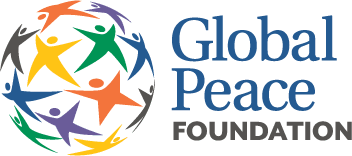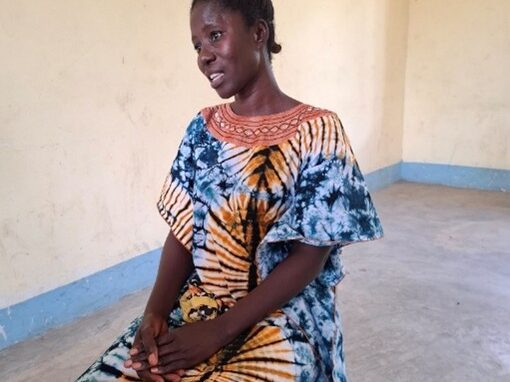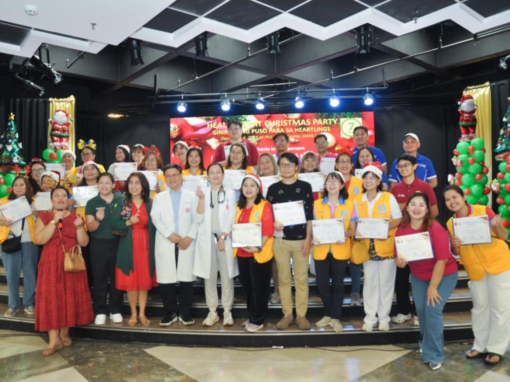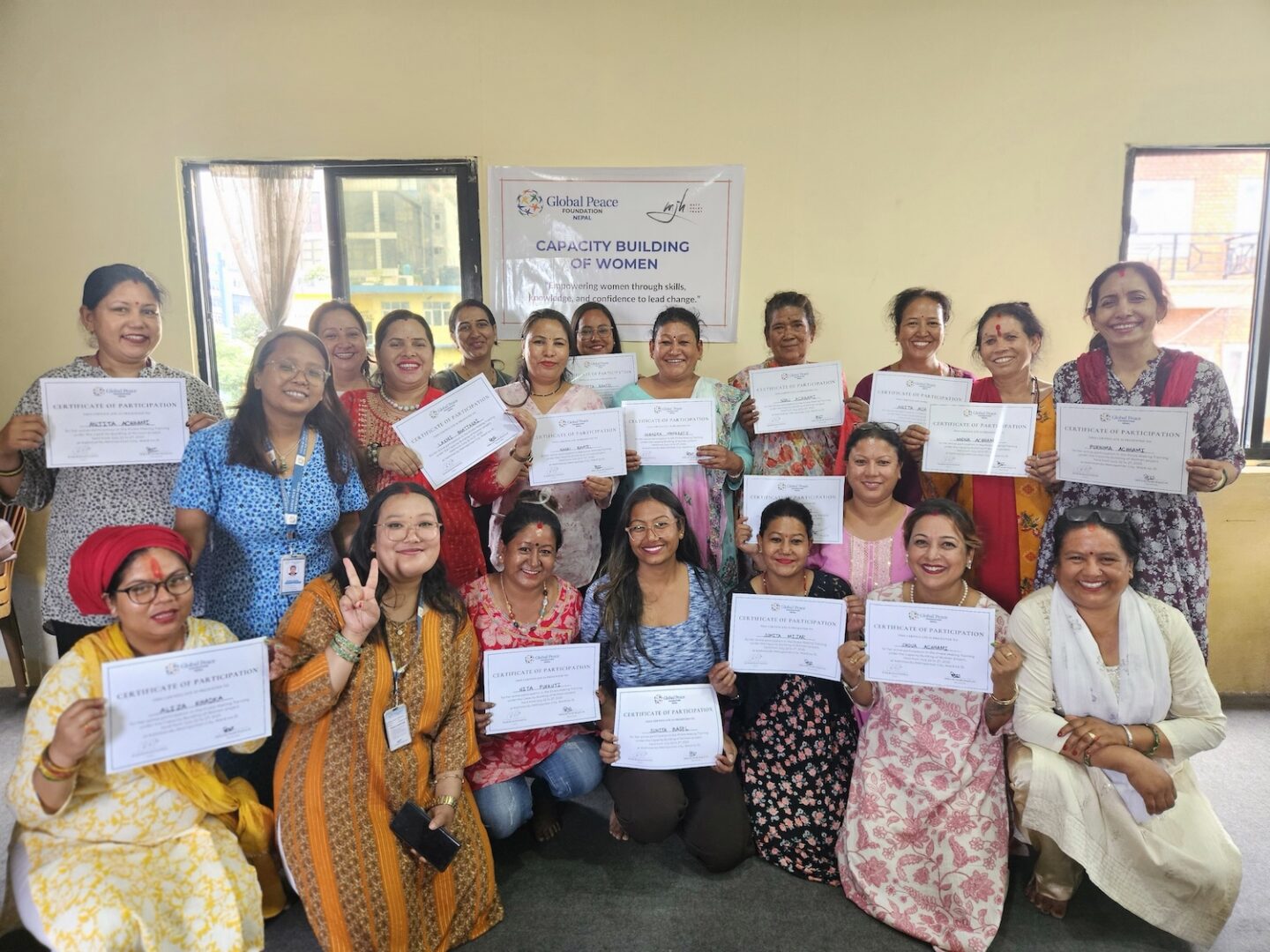
Women in Nepal participate in capacity building workshops hosted by Global Peace Foundation.
Global Peace Foundation (GPF) Nepal organized a series of activities through its Capacity-Building of Women project designed to empower women by equipping them with leadership values and essential skills. Recognizing the vital and transformative roles women play within their families and communities, the project focused on building their confidence and leadership skills, enhancing communication and collaboration abilities, and developing practical skills for income generation.
Under this project, two livelihood-focused training programs were conducted: Tailoring Training, which enabled women to acquire practical skills in domestic and commercial tailoring; and Pickle Making Training, which introduced participants to food preservation and marketing skills, promoting home-based production for economic self-reliance.
Launched on February 1, 2025, in Dhadingbesi, Nilkantha Municipality, the 3-month training equipped 21 women with both basic and advanced tailoring skills, including pattern making. Aside from the tailoring training, the women also received sessions on Self-Confidence, Effective Communication, Cervical Cancer Awareness, and Leadership Values. In addition to the 21 women enrolled in the tailoring training, five more women participated in these sessions.
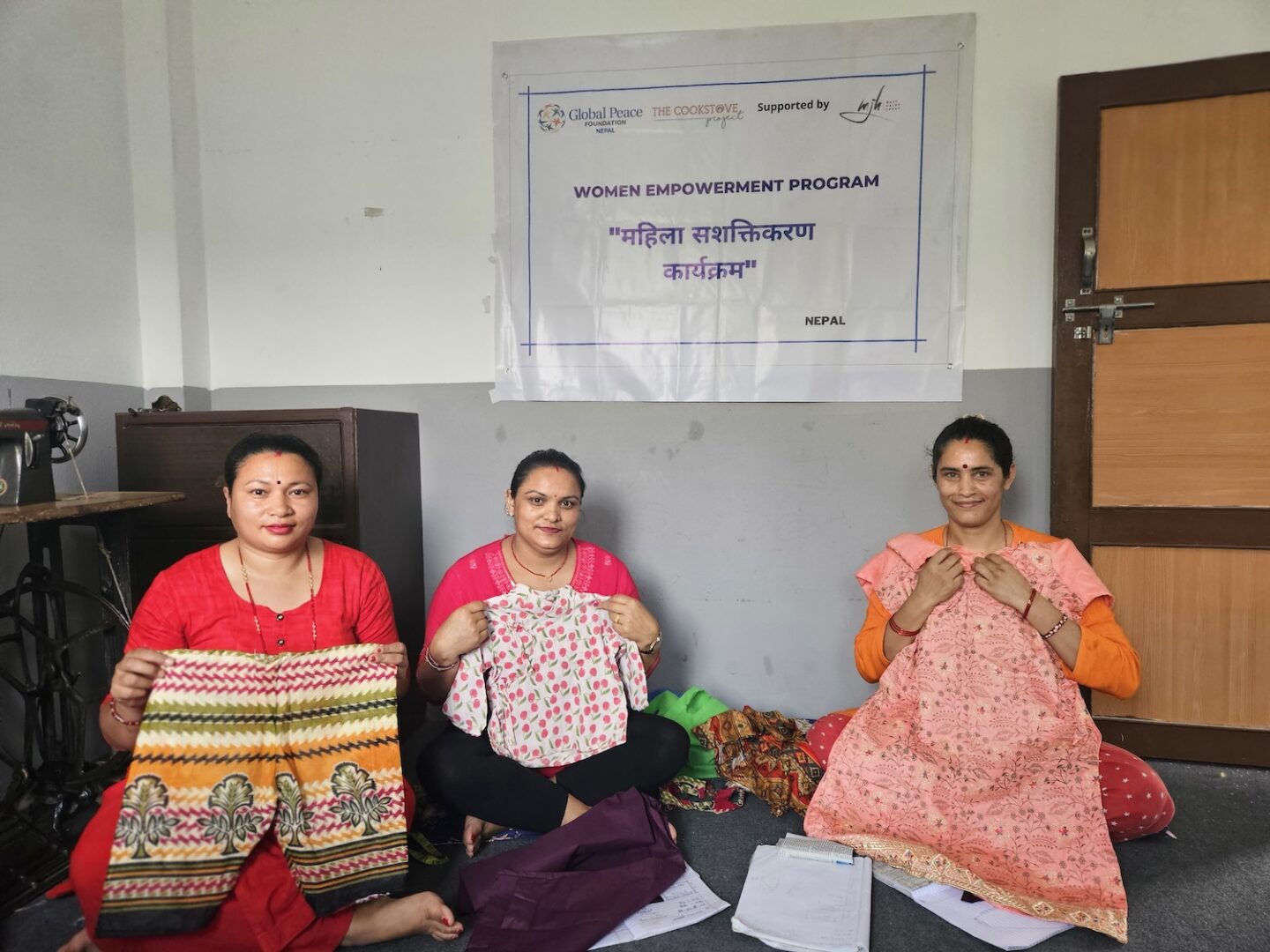
Women display their tailored clothing pieces.
One of the trainees, Kopila Sitaula, shared, “Before taking part in this training, I used to stay at home and didn’t have any specific skills. I had no prior knowledge of tailoring, but through this training, I developed tailoring skills and, more importantly, gained self-confidence. Instead of just staying at home, I got the opportunity to learn something meaningful and practical. I now hope to share what I’ve learned with others in my community. In addition to tailoring, I also improved my communication skills, and I sincerely thank GPF Nepal for giving me this valuable opportunity.”
Some of the trainees have begun working as seamstresses in local boutique shops, while others continue to enhance their tailoring skills by sewing basic items and aspire to open their own tailoring businesses in the future.
Another training session on pickle making was held in Thulo Kharibot, Kathmandu, aimed at empowering women through practical training in preparing food alongside leadership development.
The training commenced on July 22, 2025, with a session titled “Self-Confidence for Women Entrepreneurs,” which focused on mental well-being, self-worth, and building an entrepreneurial mindset. Participants engaged in interactive exercises and group discussions that fostered confidence and readiness for business ventures.
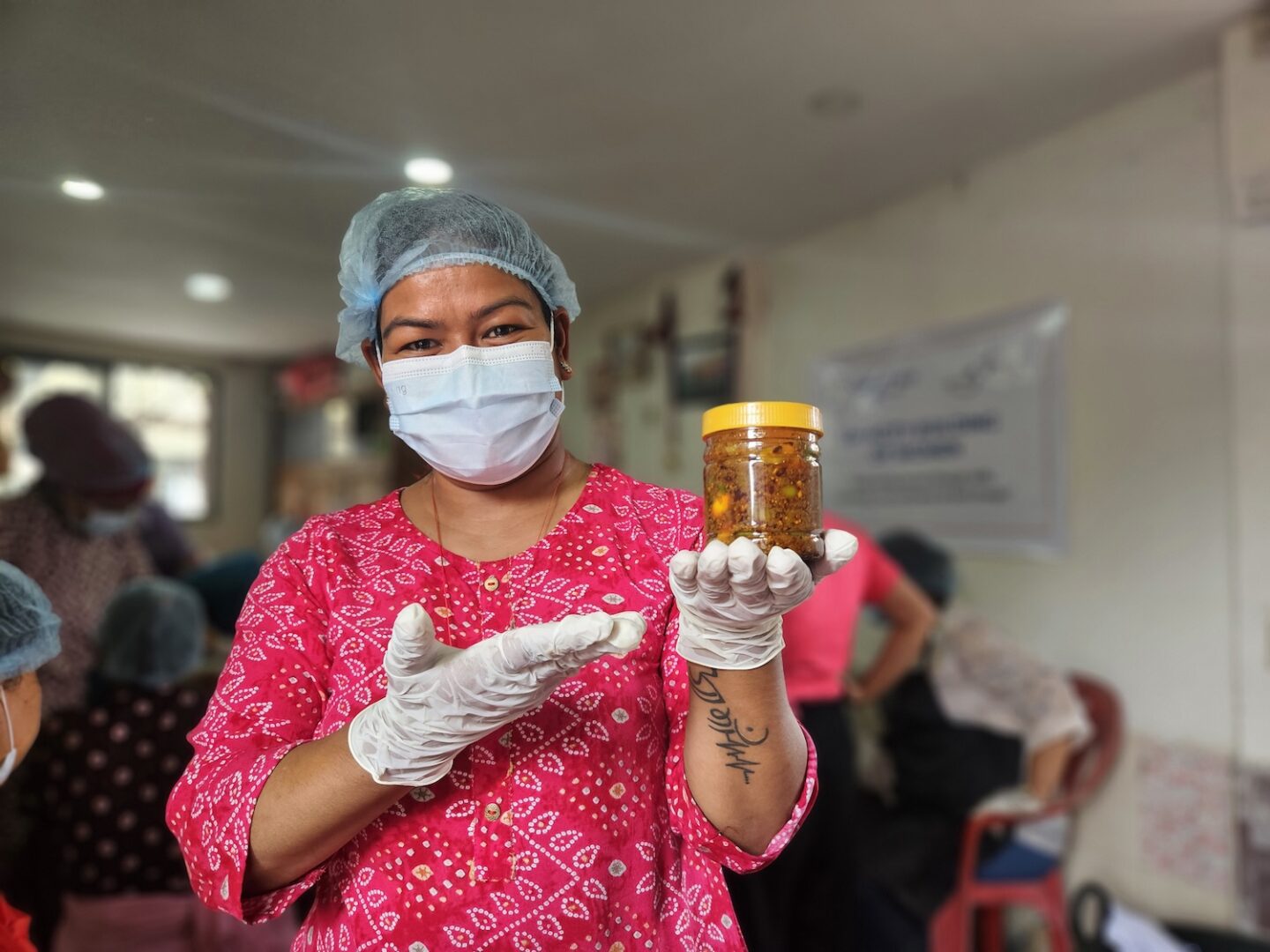
A participant showcases her product from pickle-making training.
Over the following four days, participants received hands-on training in preparing seven varieties of pickles under the guidance of trainer Ms. Mira Kumari Bajgain. The women learned both the practical and theoretical aspects of pickle production, with an emphasis on hygiene, ingredient handling, storage techniques, and packaging. To help participants begin income-generating activities, they were also taught the basics of marketing, shelf-life management, and small-scale business strategies.
The women have demonstrated remarkable enthusiasm and commitment to learning. Even on days when no formal training was scheduled, they took the initiative to gather independently, purchase their own ingredients, and practice making pickles at home. The following day, they proudly presented their homemade pickles to the trainer and requested feedback on the taste and quality. In another impressive display of ownership, the women collectively contributed their own money to buy 20kg of chicken for the last day of training. This level of motivation reflects their eagerness to apply what they’ve learned and take real steps toward self-reliance.
Moreover, on July 31, 2025, a leadership session was conducted for the same women enhancing their understanding of the role of women in leadership within families and communities, guided by the Global Peace Values Framework. Through interactive discussions and activities, the women explored how the values of living for the greater good, dreaming big, ownership, and teamwork can be applied in their everyday lives, families, and leadership.
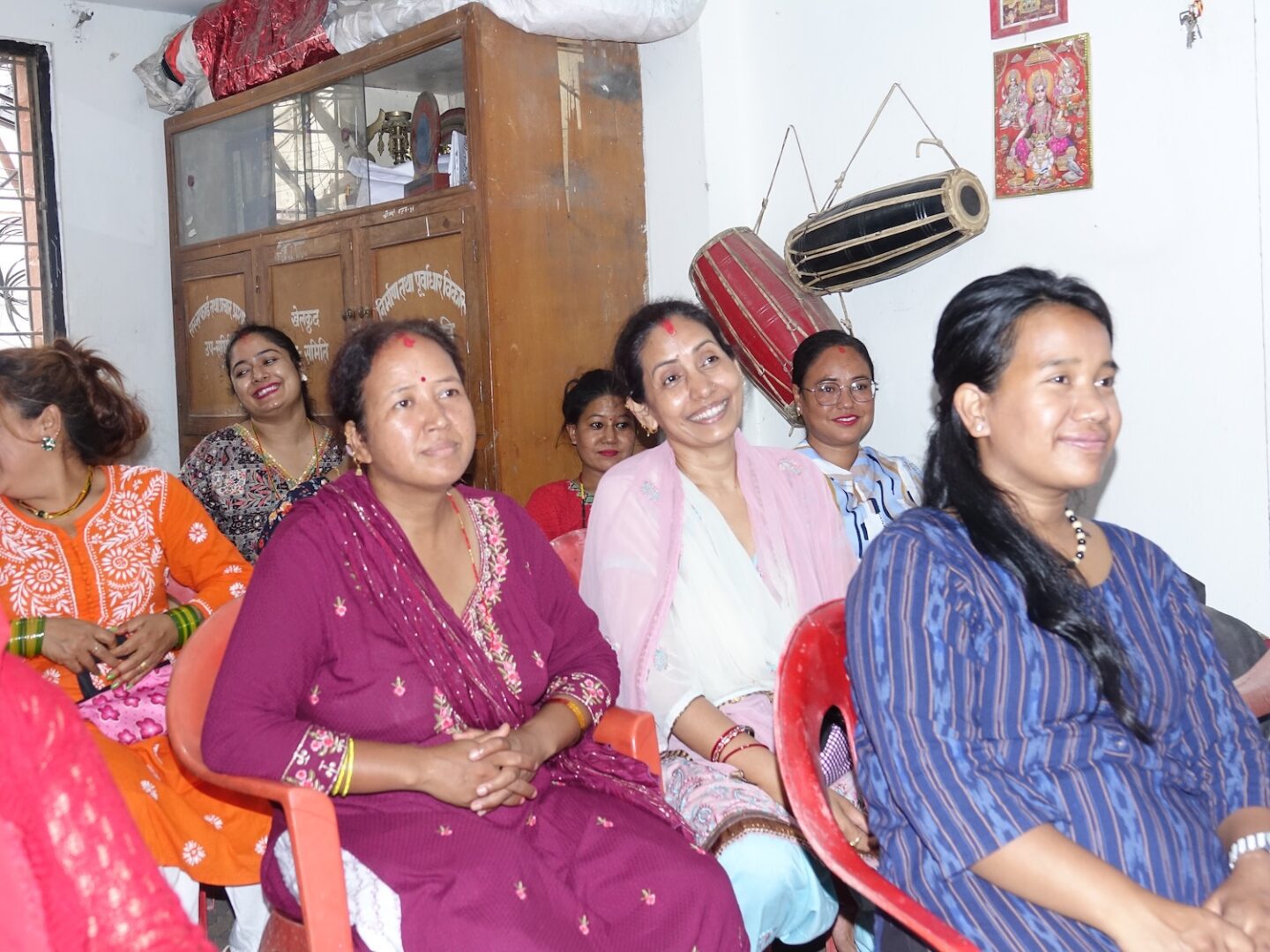
Nepalese women join a leadership session hosted by Global Peace Foundation.
With increased confidence and a deeper understanding of the vital role women play in society, they are inspired to take on leadership roles with a service-oriented mindset. As an initial step, the women organized a cleaning drive at a local temple the following day. The collective effort not only helped in maintaining the hygiene of the place but also demonstrated service, teamwork, and ownership towards their community.
On the final day of the program, on August 7, 2025, the women were educated on Financial Literacy, facilitated by Mr. Kuber Niroula. Kuber focused on practical aspects of financial management, including saving habits, budgeting, and financial planning. The session strengthened women’s financial knowledge and enhanced their ability to make informed financial decisions.
Rupa Devi Barma, one of the trainees, expressed her gratitude to GPF Nepal for organizing the training. “I found this training to be both meaningful and practical. The sessions were designed in a way that allowed us to learn by doing. It gave me fresh ideas for income generation and economic independence, especially for women. Seeing participants confidently engage in group discussions, exploring their creativity, and even talking about starting small businesses inspired me. This training has created a great example of how skill-based workshops can uplift communities and promote self-reliance. I hope similar programs will be regularly conducted, especially at the community level, so that more women can benefit from impactful training like this one.”
Four participants have begun earning money by selling homemade pickles to neighbors and acquaintances, while others continue refining their skills by making pickles for family consumption and promoting their products through free distribution to gather feedback.
The project concluded with self-evaluations and certificate distribution, during which participants reported increased confidence, enhanced practical skills, and a sense of self. This initiative not only fostered individual growth but also strengthened the participants’ capacity to generate income and contribute meaningfully to their families and communities.
